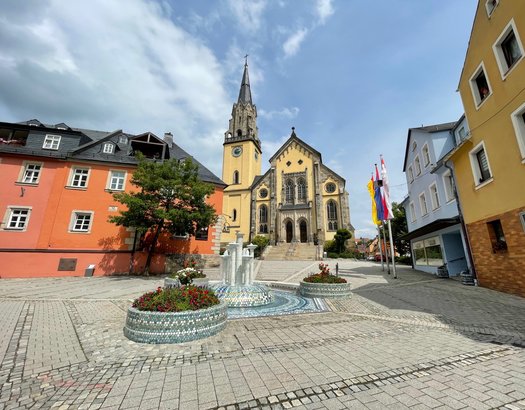Selb, Germany

Selb with a population of almost twenty thousand inhabitants is famous for its white porcelain. The town lies in the foothills of the most northern hook of the Fichtelgebirge mountains mere 15 kilometres from the Czech border. The first written records mentioning Selb date back to 1281, and it acquired the right to become a town in 1426. A great fire destroyed the whole town in 1856 leaving only one building standing. A year later here Lorenz Hutschenreuther established his first porcelain factory creating new work opportunities for locals working in the weaving industry. Selb soon became the centre of industrial production of porcelain in Germany. Besides the production of decorative porcelain the town also produces technical ceramics, measuring devices, and energy technology. Selb also has a wide choice of venues for sporting and cultural activities.
Pardubice Chamber Philharmonic Orchestra and the East Bohemian Theatre group have performed here and sculptors and artists from Pardubice have also held exhibitions here.
The town’s theatre which underwent a grand reconstruction holds a wide range of shows and cultural events. The town has a tennis hall, tennis courts, a modern covered swimming pool and also a winter sports stadium, one of the most beautiful in Germany. In travelling to Selb you generally pass through dense pine forests although occasionally you will chance upon beautiful views of the countryside. Visitors then realise what a wonderful holiday you can have in this porcelain town. A twin town agreement was signed by Pardubice and Selb back in October 1991.
Since that time, primary school choirs from Pardubice have visited their Selb counterparts for joint Christmas concerts. Other cultural exchanges include painter’s and sculptor’s exhibitions, the Pardubice Chamber Philharmonic Orchestra performed in Selb, and an accordion ensemble from the Musikschule (music school), came to Pardubice. Citizens of Selb visit Pardubice vice versa for recreational purposes every year.
